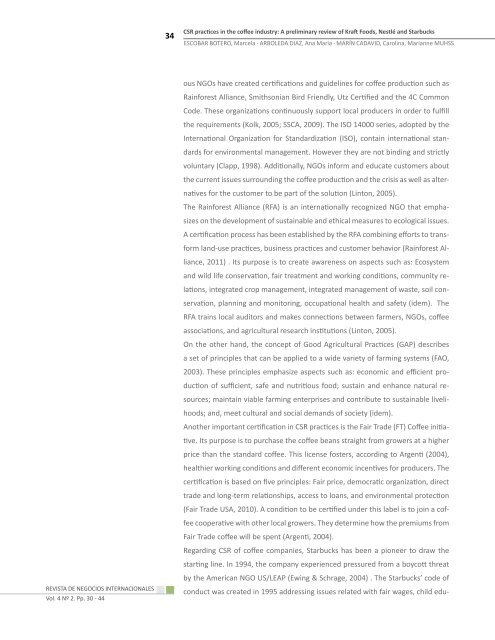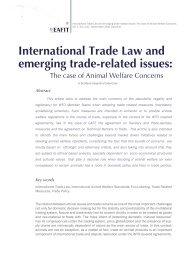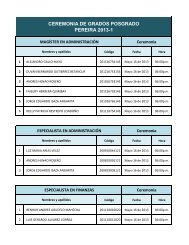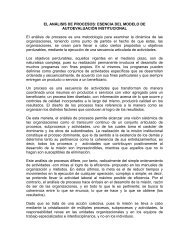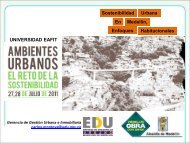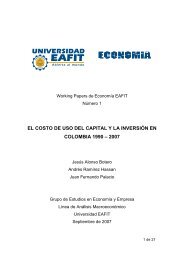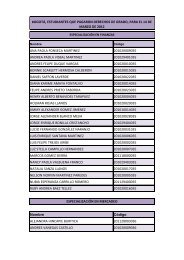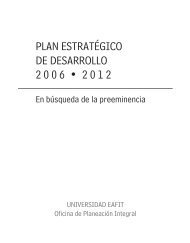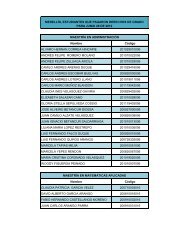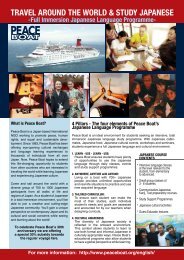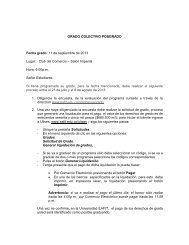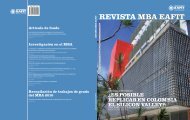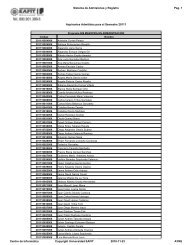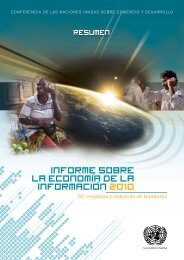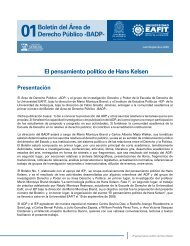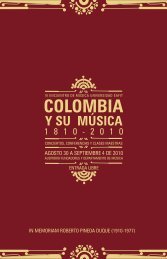Revista de negocios Internacionales Vol 4 Nº 2 - Universidad EAFIT
Revista de negocios Internacionales Vol 4 Nº 2 - Universidad EAFIT
Revista de negocios Internacionales Vol 4 Nº 2 - Universidad EAFIT
You also want an ePaper? Increase the reach of your titles
YUMPU automatically turns print PDFs into web optimized ePapers that Google loves.
REVisTA DE NEgOciOs iNTERNAciONAlEs<br />
<strong>Vol</strong>. 4 <strong>Nº</strong> 2. Pp. 30 - 44<br />
34<br />
CSR practices in the coffee industry: A preliminary review of Kraft Foods, Nestlé and Starbucks<br />
ESCOBAR BOTERO, Marcela · ARBOLEDA DIAZ, Ana Maria · MARÍN CADAVID, Carolina, Marianne MUHSS<br />
ous NGOs have created certifications and gui<strong>de</strong>lines for coffee production such as<br />
Rainforest Alliance, Smithsonian Bird Friendly, Utz Certified and the 4C Common<br />
Co<strong>de</strong>. These organizations continuously support local producers in or<strong>de</strong>r to fulfill<br />
the requirements (Kolk, 2005; SSCA, 2009). The ISO 14000 series, adopted by the<br />
International Organization for Standardization (ISO), contain international standards<br />
for environmental management. However they are not binding and strictly<br />
voluntary (Clapp, 1998). Additionally, NGOs inform and educate customers about<br />
the current issues surrounding the coffee production and the crisis as well as alternatives<br />
for the customer to be part of the solution (Linton, 2005).<br />
The Rainforest Alliance (RFA) is an internationally recognized NGO that emphasizes<br />
on the <strong>de</strong>velopment of sustainable and ethical measures to ecological issues.<br />
A certification process has been established by the RFA combining efforts to transform<br />
land-use practices, business practices and customer behavior (Rainforest Alliance,<br />
2011) . Its purpose is to create awareness on aspects such as: Ecosystem<br />
and wild life conservation, fair treatment and working conditions, community relations,<br />
integrated crop management, integrated management of waste, soil conservation,<br />
planning and monitoring, occupational health and safety (i<strong>de</strong>m). The<br />
RFA trains local auditors and makes connections between farmers, NGOs, coffee<br />
associations, and agricultural research institutions (Linton, 2005).<br />
On the other hand, the concept of Good Agricultural Practices (GAP) <strong>de</strong>scribes<br />
a set of principles that can be applied to a wi<strong>de</strong> variety of farming systems (FAO,<br />
2003). These principles emphasize aspects such as: economic and efficient production<br />
of sufficient, safe and nutritious food; sustain and enhance natural resources;<br />
maintain viable farming enterprises and contribute to sustainable livelihoods;<br />
and, meet cultural and social <strong>de</strong>mands of society (i<strong>de</strong>m).<br />
Another important certification in CSR practices is the Fair Tra<strong>de</strong> (FT) Coffee initiative.<br />
Its purpose is to purchase the coffee beans straight from growers at a higher<br />
price than the standard coffee. This license fosters, according to Argenti (2004),<br />
healthier working conditions and different economic incentives for producers. The<br />
certification is based on five principles: Fair price, <strong>de</strong>mocratic organization, direct<br />
tra<strong>de</strong> and long-term relationships, access to loans, and environmental protection<br />
(Fair Tra<strong>de</strong> USA, 2010). A condition to be certified un<strong>de</strong>r this label is to join a coffee<br />
cooperative with other local growers. They <strong>de</strong>termine how the premiums from<br />
Fair Tra<strong>de</strong> coffee will be spent (Argenti, 2004).<br />
Regarding CSR of coffee companies, Starbucks has been a pioneer to draw the<br />
starting line. In 1994, the company experienced pressured from a boycott threat<br />
by the American NGO US/LEAP (Ewing & Schrage, 2004) . The Starbucks’ co<strong>de</strong> of<br />
conduct was created in 1995 addressing issues related with fair wages, child edu-


